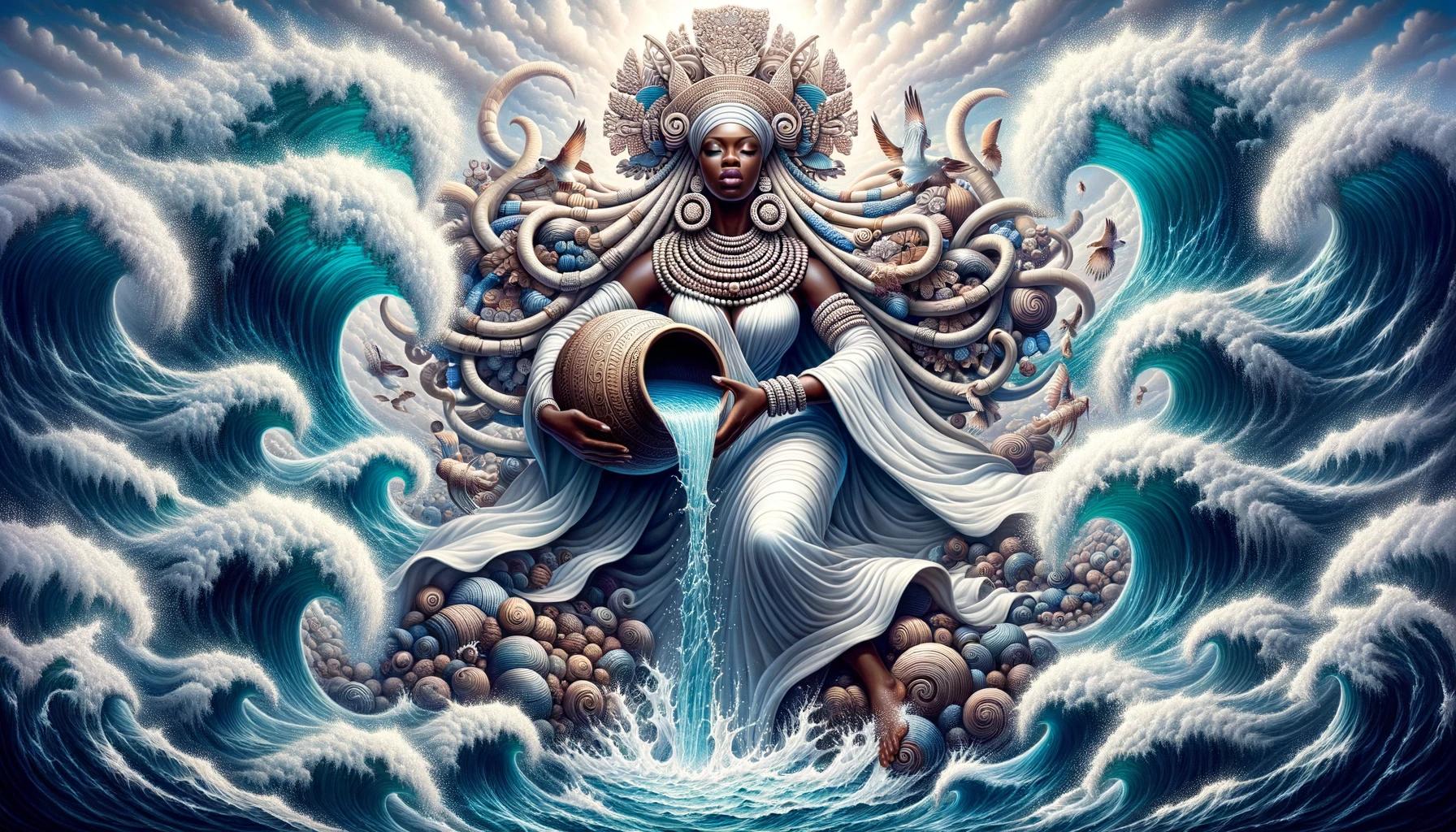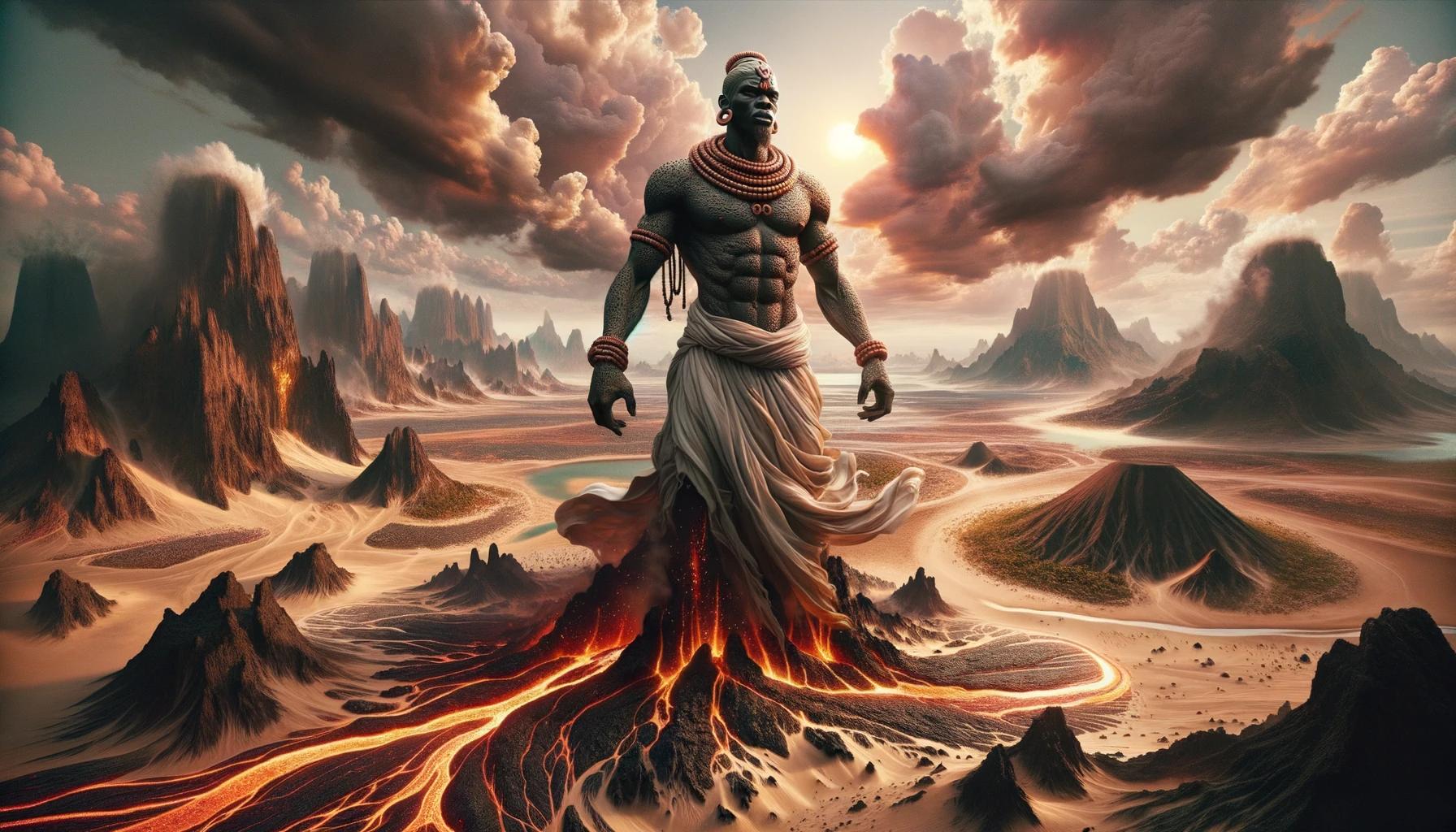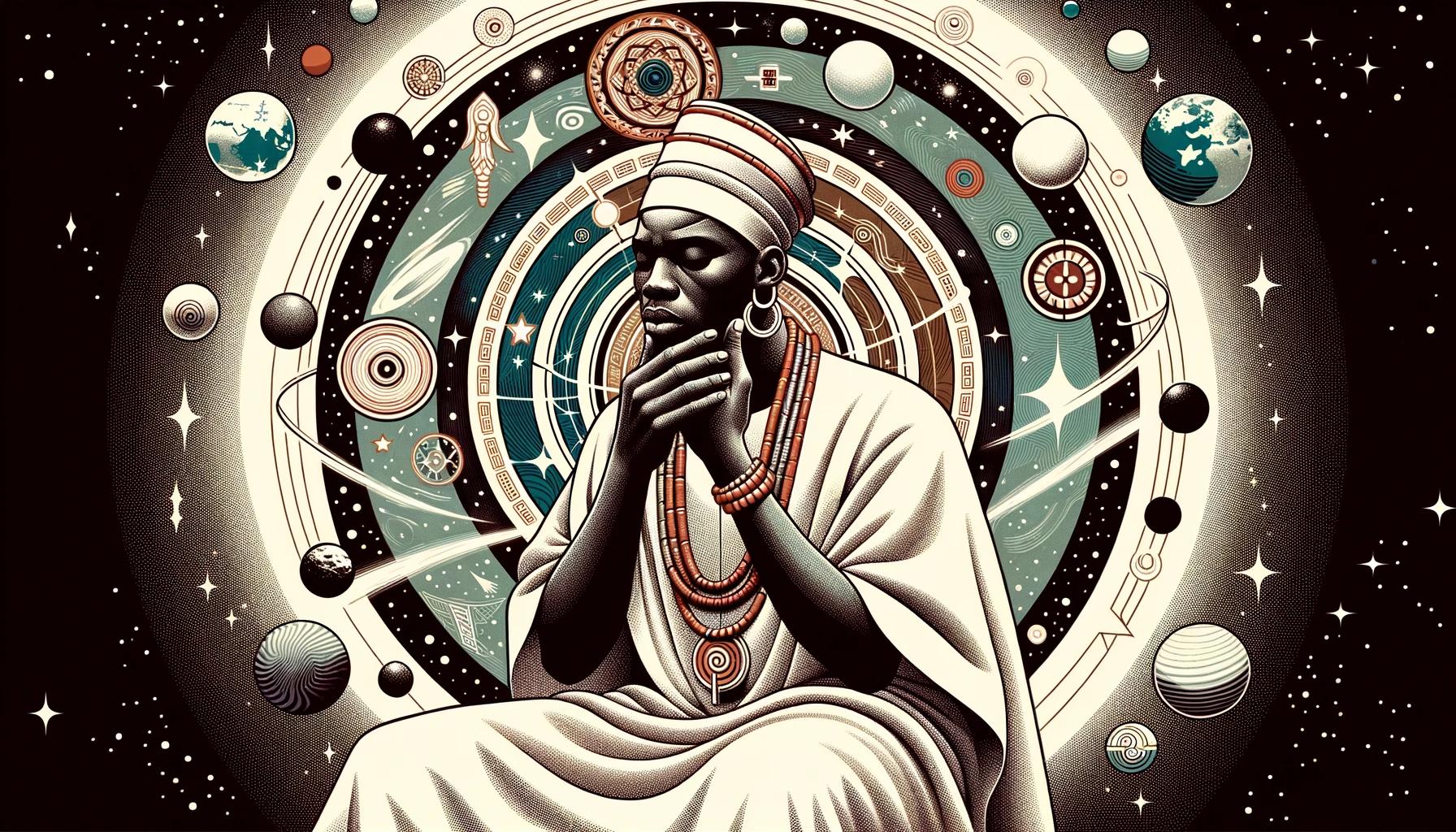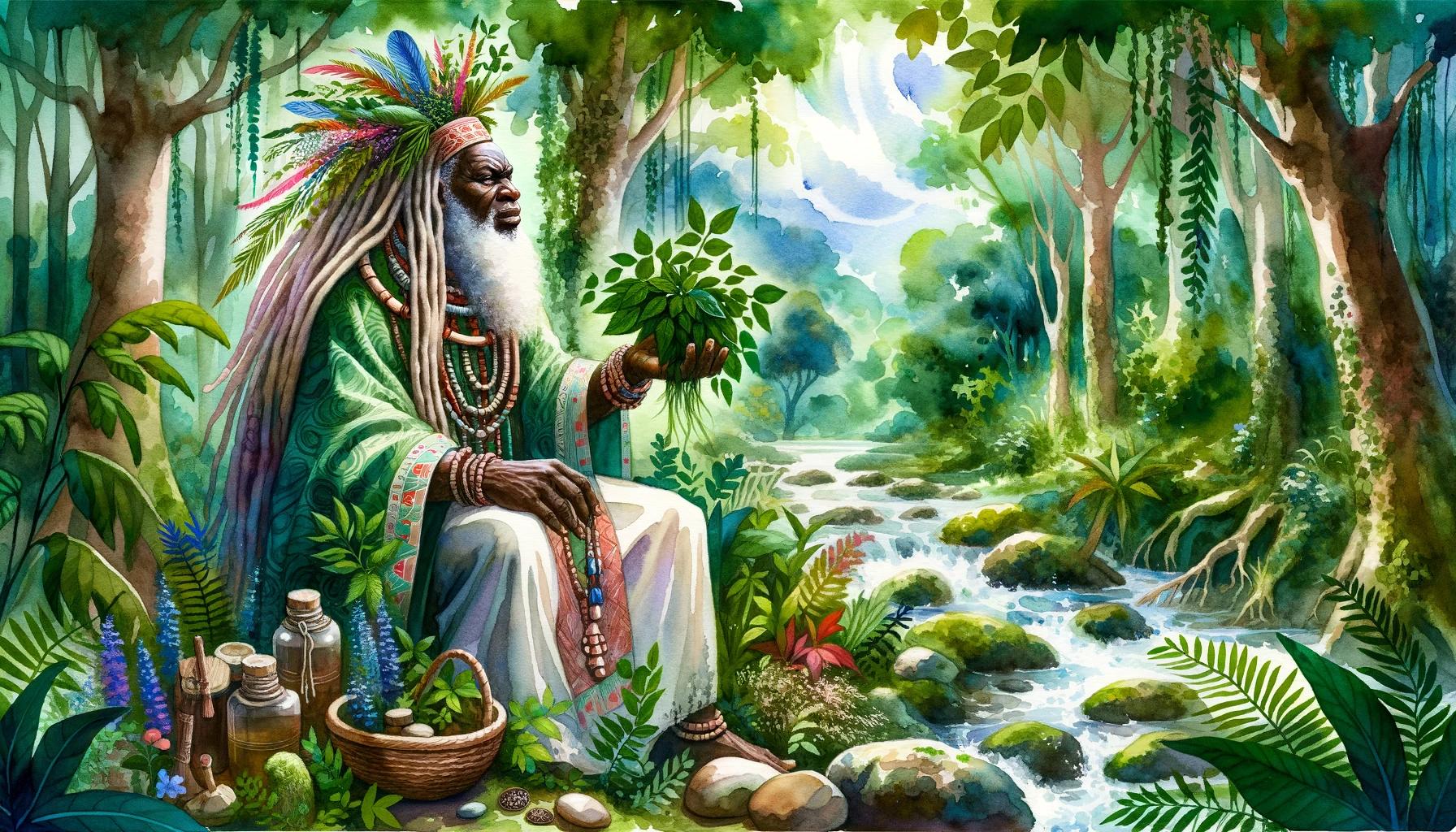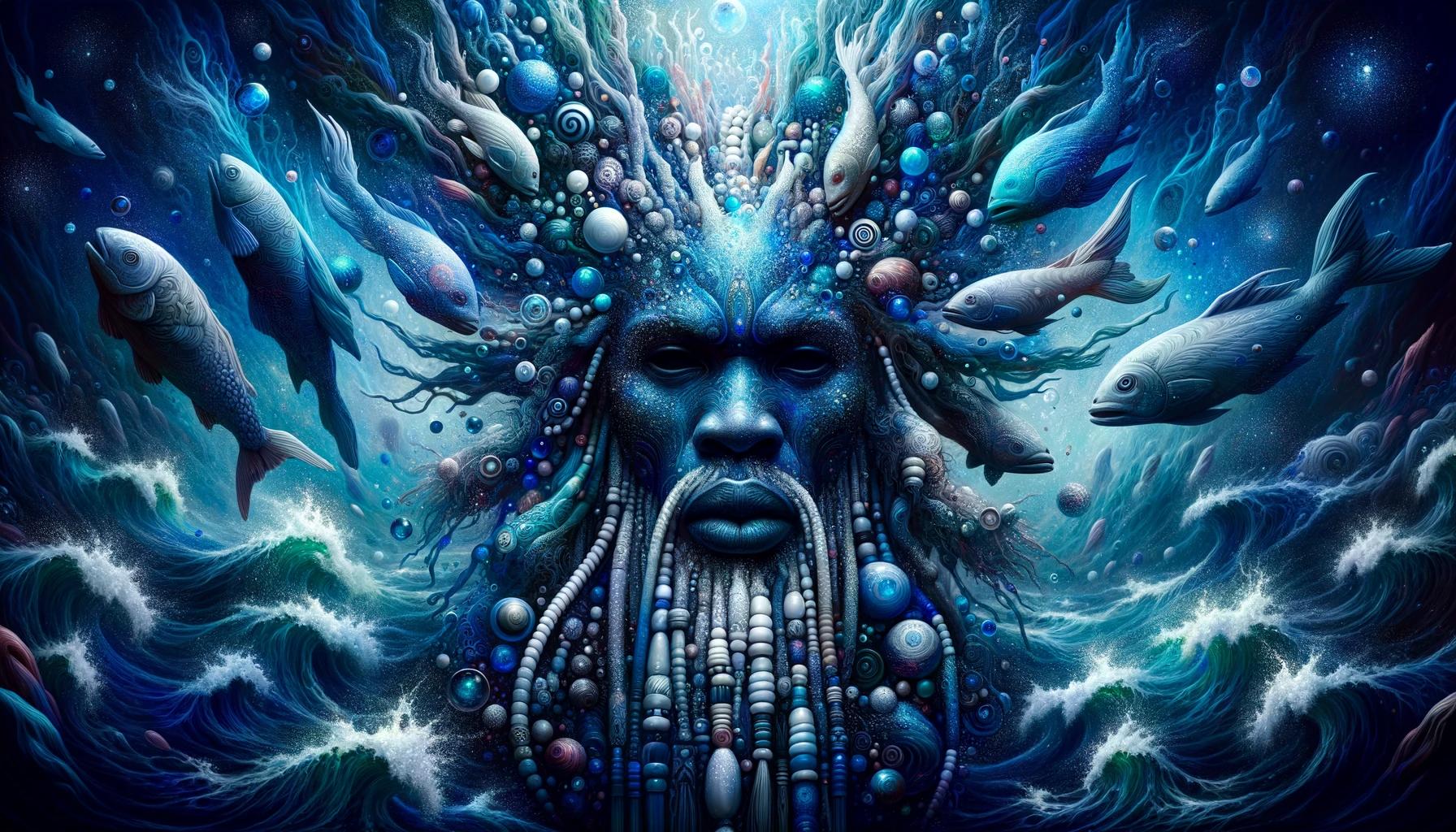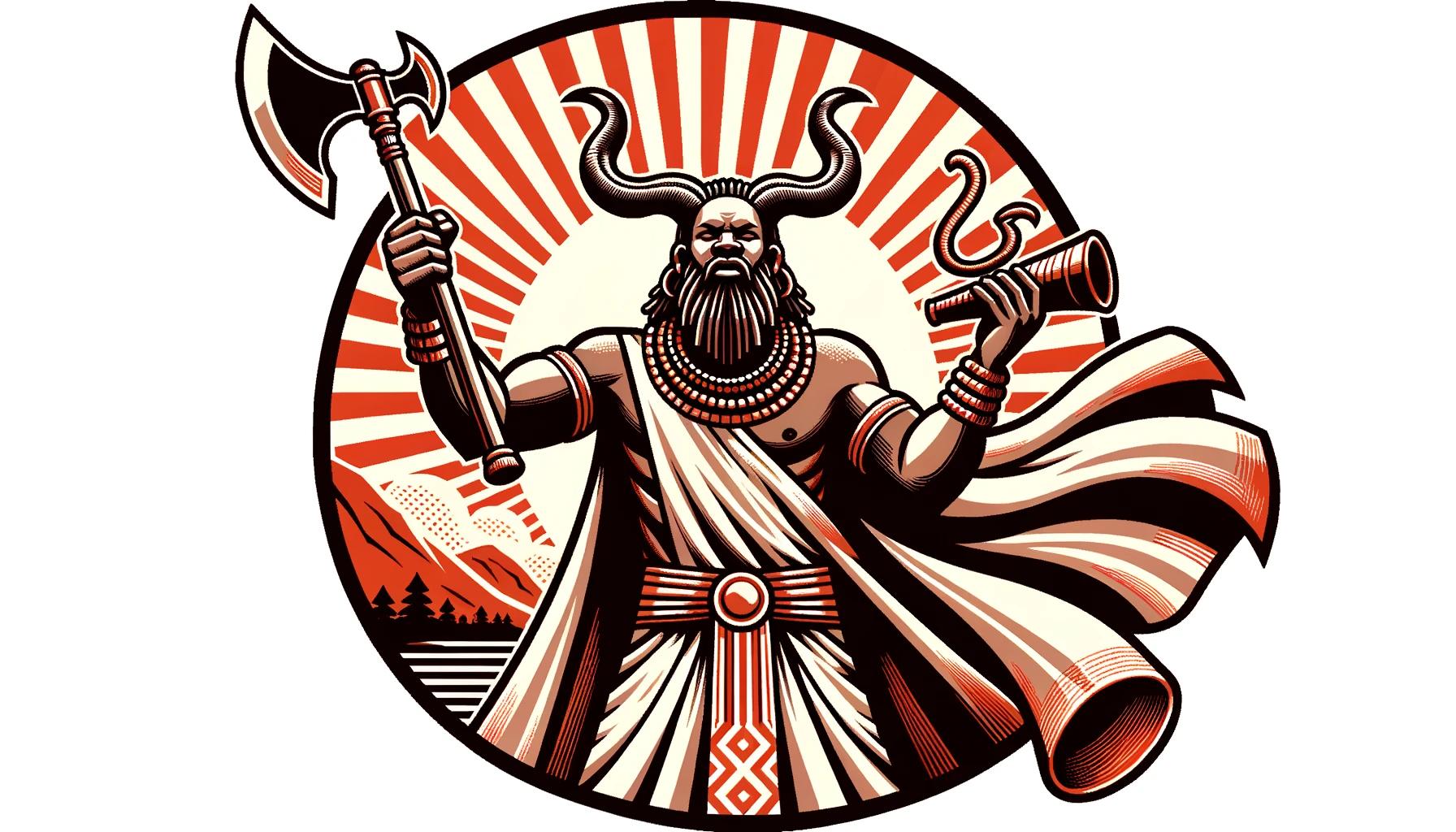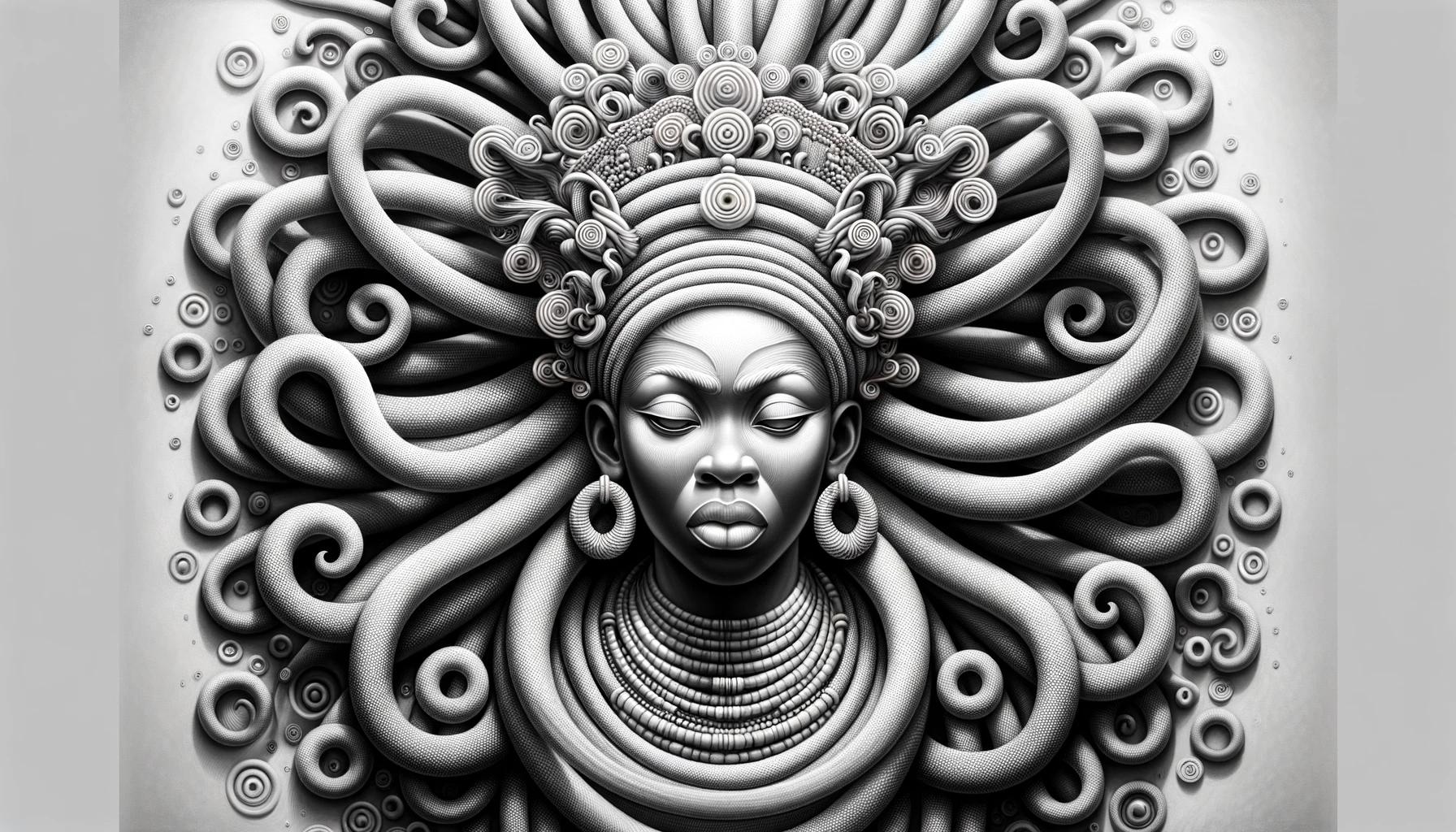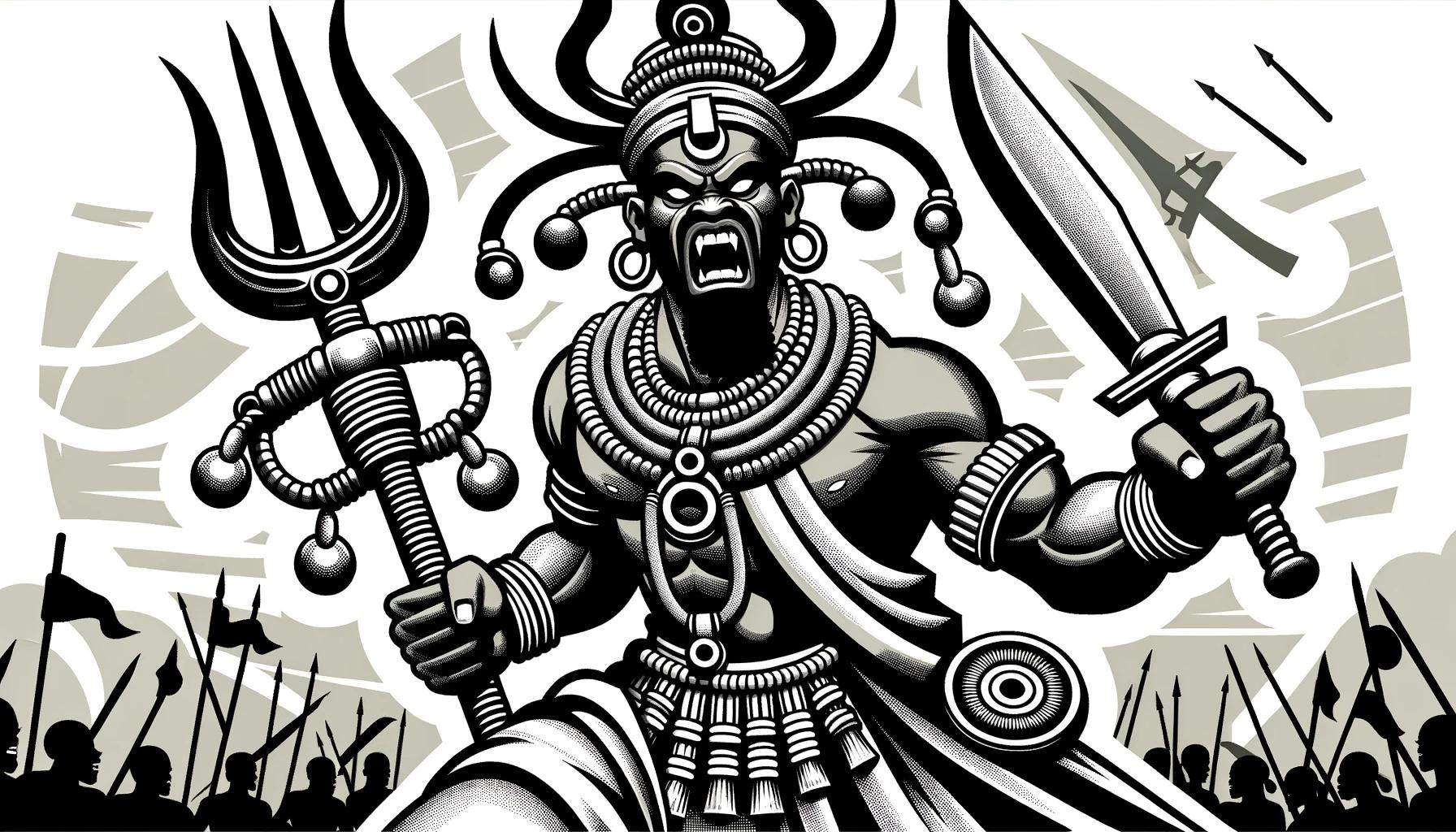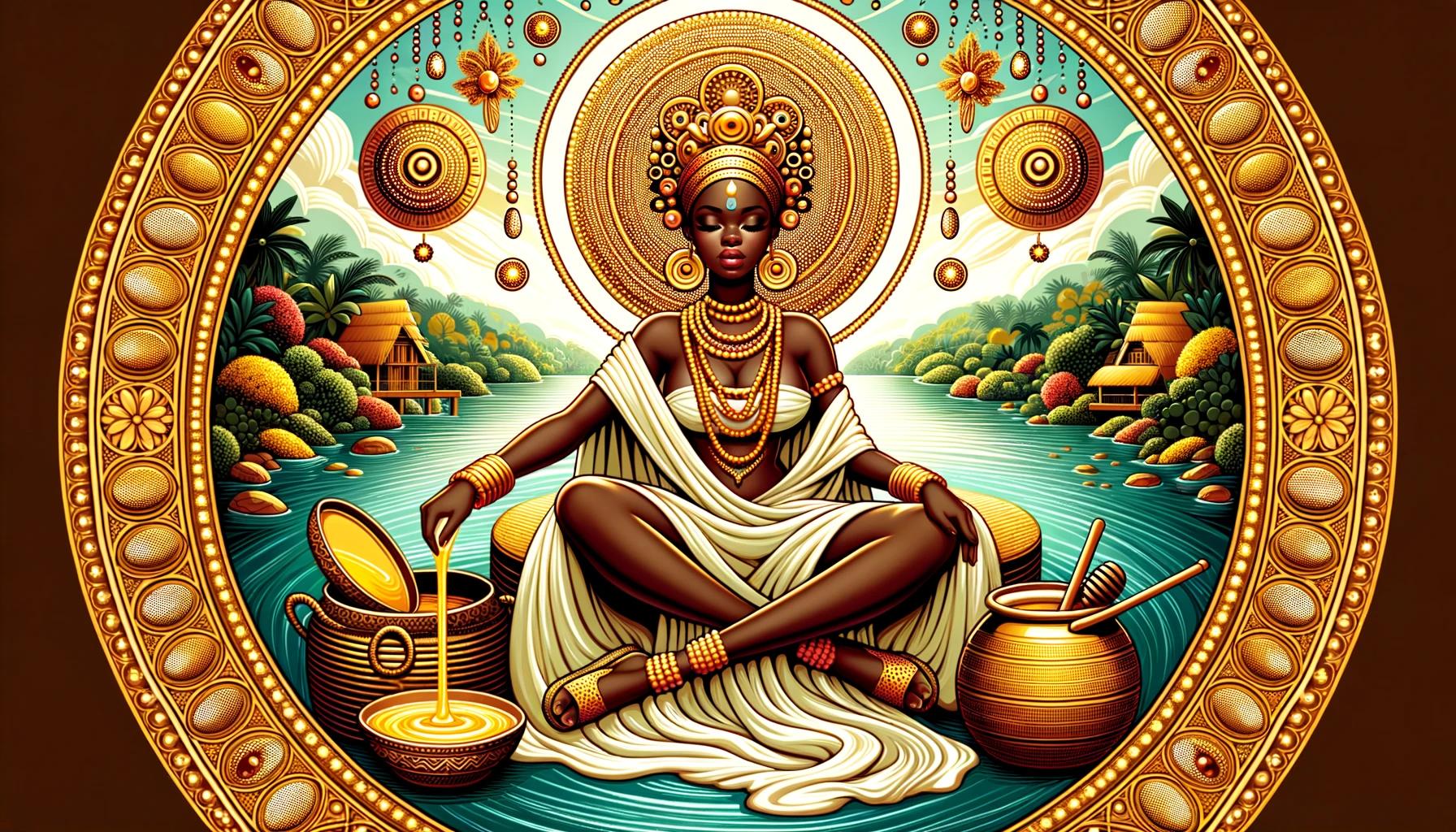Who is Yemaya the Water Goddess: Exploring the Deity’s Significance and Legends in Afro-Caribbean Traditions
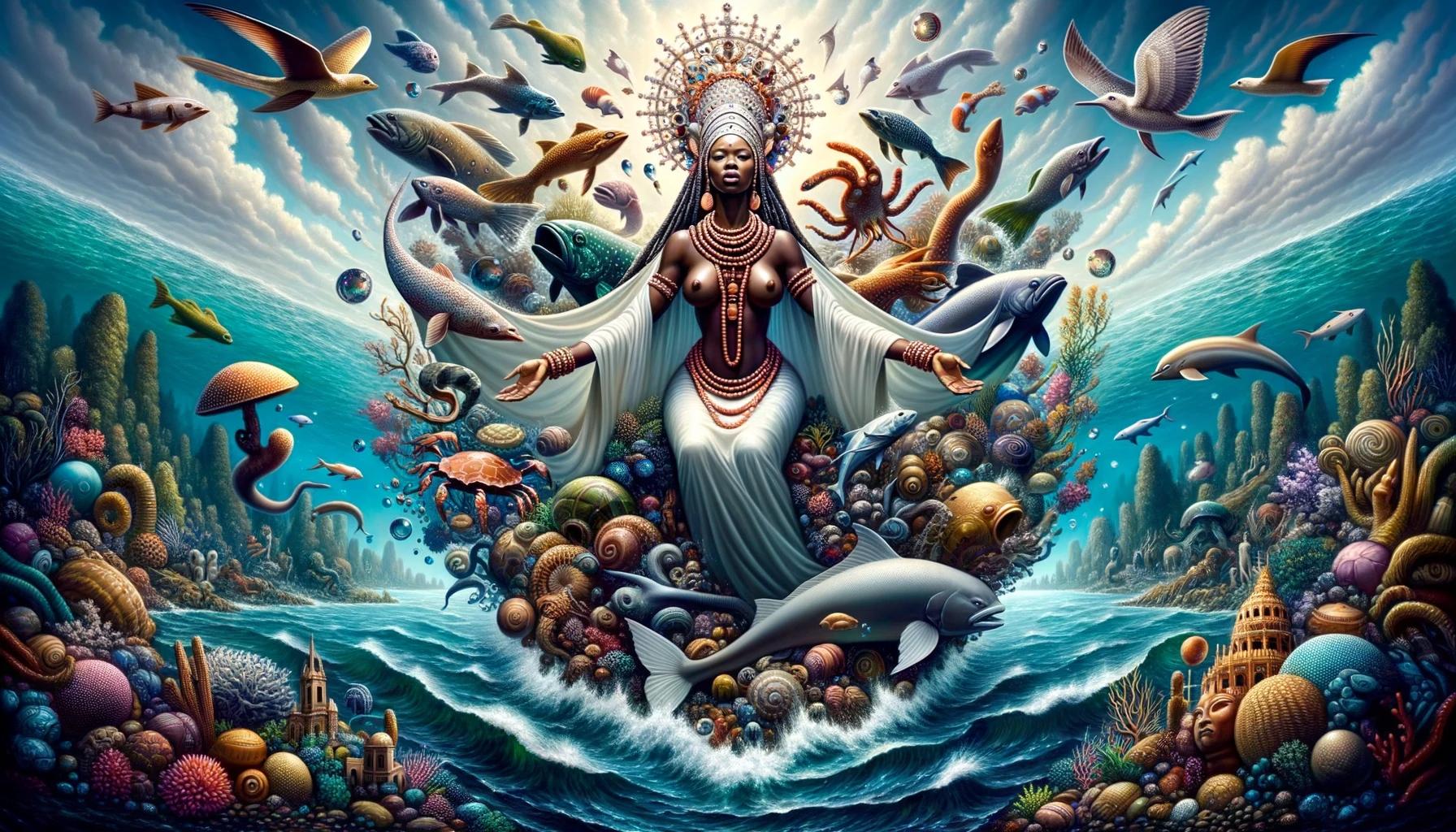
Yemaya, the Water Goddess, holds significant esteem in Afro-Caribbean religions. Originating from the Yoruba religion, she is revered as the mother of all Orishas and the patroness of rivers and oceans.
In Cuba, Brazil, and other parts of the Americas, her worship has spread and intertwined with Afro-Caribbean traditions. She also holds parallels with the Virgin Mary in these beliefs. This article delves into Yemaya’s legends, attributes, celebrations, and connections to the world, exploring her symbolic representations and her connections with Olokun, another deity in Yoruba cosmology.
Folklore and transformations of Yemaya’s archetype are also explored.
Yemaya the Water Goddess in Afro-Caribbean Religions
Yemaya, the Water Goddess, holds a significant place in Afro-Caribbean religions, particularly in the Yoruba tradition. Her origins date back to the Yoruba religion, where she is revered as one of the primary deities.
Yemaya’s importance lies in her role as the mother of all Orishas, the patroness of rivers and oceans, and a symbol of motherhood and life.
Origins and Importance in the Yoruba Religion
In the Yoruba religion, Yemaya is considered a prominent deity.
She is believed to have ancient origins, with her worship deeply rooted in Yoruba cosmology. As the mother of all Orishas, Yemaya represents the nurturing and protective aspects of motherhood. Her association with water symbolizes both life and cleansing, as water is seen as a purifying force in Yoruba mythology.
Spread and Veneration in Cuba and Brazil
Yemaya’s veneration extends beyond the Yoruba homeland, reaching places such as Cuba and Brazil through the African diaspora. In Cuba, she is widely honored in the Santería religion, blending elements of Yoruba spirituality with Catholicism.
Similarly, in Brazil, Yemaya is revered in Candomblé, an Afro-Brazilian religion influenced by Yoruba traditions. The spread of her worship in these regions reflects the resilience and adaptability of African spiritual practices in the New World.
Comparisons with the Virgin Mary in Afro-Caribbean Traditions
In Afro-Caribbean traditions, particularly in Cuba, Yemaya is often associated with the Virgin Mary. This connection emerged as a result of syncretism, the blending of African religions with Catholicism during the colonial period.
The similarities between Yemaya and the Virgin Mary, such as their maternal roles and associations with water, allowed for a seamless integration of the two figures in religious practices. This unique fusion showcases the cultural richness and complexity of Afro-Caribbean spirituality.
The Legend and Attributes of Yemaya
Yemaya, the Water Goddess, is revered in Afro-Caribbean religions for her rich mythology and symbolic attributes. Her significance extends beyond being the mother of all Orishas, embodying the essence of motherhood, nurturing, and protection.
Let’s explore the symbolism behind Yemaya as the Mother of All Orishas, the significance of water and marine elements in her worship, and the legends and stories associated with her divine presence.
Symbolism of Yemaya as the Mother of All Orishas
Yemaya’s role as the Mother of All Orishas represents her primacy and importance in the divine pantheon. She symbolizes the essence of motherhood, fertility, and creation. Her nurturing embrace extends to all beings, reminding us of the unconditional love and care that a mother provides.
In Afro-Caribbean traditions, she is revered as the ultimate protector and guide, offering comfort and guidance to her devotees.
Significance of the Water and Marine Elements
Water holds a profound significance in Yemaya’s worship. As the Goddess of the oceans and rivers, she embodies the life-giving force and the source of all existence. The ebb and flow of the tides mirror the cyclical nature of life, reflecting both its tranquility and its power.
The marine elements associated with Yemaya, such as conch shells, sea stones, and nets, remind us of her connection to the depths of the ocean and the mysteries it holds.
Legends and Stories Associated with Yemaya
Yemaya’s legends and stories are deeply intertwined with the creation of the world and the origins of humanity.
According to Yoruba mythology, it is believed that the primordial waters of Yemaya broke upon the Earth, giving birth to rivers, seas, and life itself. Her divine presence imbues myths and oral traditions with tales of her protective nature, her wisdom, and her interactions with other deities.
These stories serve as a source of inspiration and guidance, illustrating the depth of Yemaya’s character and her everlasting impact.
Celebrations and Festivals in Honor of Yemaya
Cultural Variations in Yemaya Celebrations:
Yemaya’s veneration is marked by diverse cultural variations in celebrations throughout Afro-Caribbean communities. These celebrations differ based on geographical locations, local traditions, and the specific diasporic influences present.
Each region or community may have its own unique way of honoring and revering Yemaya, infusing local customs and beliefs into the festivities.
Rituals, Offerings, and Practices during Yemaya Festivals:
During Yemaya festivals, devotees engage in various rituals, offerings, and practices to show their devotion and seek her blessings.
These rituals often involve processions or pilgrimages to bodies of water such as rivers, lakes, or the ocean, where offerings are made. Offerings to Yemaya can include fruits, flowers, shells, or other symbolic items associated with the sea or water.
Participants might also engage in prayer, singing, drumming, and dance to connect with Yemaya’s energy and express their reverence.
Yemaya’s Colors, Symbols, and Sacred Items:
Yemaya is closely associated with specific colors, symbols, and sacred items that carry deep meaning within her worship.
The colors most commonly associated with Yemaya are blue and white, which symbolize the purity and vastness of the ocean. She is often represented by various symbols, such as the number 7 – a sacred number in Yemaya’s worship.
Symbols from the sea, like conch shells, sea stones, and nets, are also used to adorn altars or sacred spaces dedicated to Yemaya.
In summary, the celebrations and festivals in honor of Yemaya reflect the rich diversity of Afro-Caribbean cultures.
These celebrations incorporate unique rituals, offerings, and practices specific to each region or community. Devotees express their devotion to Yemaya through various customs and symbolism, including the use of her associated colors, symbols, and sacred items.
Participating in Yemaya’s festivals offers a profound connection to her divine presence and the blessings she bestows upon her devotees.
Symbols of Yemaya and Their Meanings
Yemaya, the Water Goddess, is rich in symbolism that reflects her significance in Afro-Caribbean religions. Through various symbols, devotees connect with her essence and tap into her powers. Let’s explore some of the key symbols associated with Yemaya:
Exploring the Significance of the Number 7
The number 7 holds deep significance in Yemaya’s representation.
It is considered sacred and represents different aspects of her energy. In Yoruba mythology, Yemaya is associated with seven seas, seven moons, and seven colors. This number also signifies completeness and balance, encapsulating the vastness and depth of Yemaya’s power.
The Colors Blue and White in Yemaya’s Representation
Blue and white are the primary colors associated with Yemaya. Blue symbolizes the vastness of the oceans and the depth of her wisdom. It represents tranquility, peace, and emotional healing. White represents purity, clarity, and spiritual enlightenment.
Together, these colors reflect the harmonious nature of Yemaya’s essence and her nurturing energy.
Conch Shells, Sea Stones, and Nets as Representations of Yemaya
Conch shells, sea stones, and nets are significant symbols representing Yemaya. Conch shells symbolize the power and authority of Yemaya over the waters. They are also associated with fertility and abundance.
Sea stones represent the stability and strength of the ocean, while nets symbolize the interconnectedness and flow of life. These symbols are used in ceremonies and altars dedicated to Yemaya, honoring her role as the mother of all Orishas and the giver of life.
Yemaya’s Influence and Connections to the World
Yemaya as a Patron Deity of Water and the Oceans
Yemaya holds a significant role as a patron deity of water and the oceans in Afro-Caribbean religions. She is revered as the mother of all Orishas and is believed to have the power to control and protect bodies of water.
Her influence extends beyond the physical realms, as she is seen as a divine force that governs the ebb and flow of life’s emotions and experiences. Yemaya’s connection to the waters symbolizes her ability to nurture, cleanse, and provide sustenance to her devotees.
Yemaya’s Role in Afro-Caribbean Diasporas Worldwide
Yemaya’s worship and veneration have transcended geographical boundaries and have found a place in Afro-Caribbean diasporas across the globe. Communities in Cuba, Brazil, and various other parts of the Americas have embraced Yemaya as an integral part of their religious and cultural practices.
Through migration and globalization, Yemaya’s influence has spread, creating bridges between diverse cultures and belief systems.
Contemporary Beliefs and Practices with Yemaya
In contemporary times, Yemaya continues to play a significant role in the lives of many individuals. Her presence is felt in celebrations, rituals, and offerings dedicated to her. Devotees seek her guidance and protection, especially in times of change, transitions, and challenges.
Yemaya’s energy is associated with fertility, healing, and emotional well-being. People turn to her for spiritual nourishment and find solace in her compassionate and nurturing nature.
Folklore and Legends Surrounding Yemaya
In Afro-Caribbean cultures, Yemaya is surrounded by rich folklore and legends that highlight her significance as a water goddess and the protectress of humanity.
These stories contribute to the vibrant tapestry of her mythology and illustrate various aspects of her divine nature and role in the world.
Tales of Yemaya’s Creation of Rivers and Seas
According to Yoruba mythology, Yemaya played a fundamental role in the formation of the natural world.
One prominent legend depicts her as the primordial mother whose waters broke over the Earth, giving birth to rivers, seas, and life itself. Her sacred waters are believed to bear the essence of creation, flowing through the veins of the earth and sustaining all living beings.
Yemaya’s Protective and Nurturing Role in Mythology
Yemaya is revered as a compassionate and caring deity, embodying qualities of motherhood and protection. Legends depict her as a guardian of sailors and fishermen, ensuring their safe passage on the treacherous waters.
She is also known for her healing abilities, offering solace and comfort to those in need. Yemaya’s nurturing nature extends to her role as the mother of all Orishas, providing guidance and unconditional love to her divine offspring.
Transformation of Yemaya’s Archetype in Popular Culture
Yemaya’s powerful presence has transcended traditional religious contexts and found its way into popular culture, where her archetype has undergone various transformations. In music, literature, and art, Yemaya is often depicted as a symbol of femininity, empowerment, and the strength of the natural world.
She has become an iconic figure that represents the interconnectedness between humanity and the oceans, inspiring individuals to cultivate a deeper respect and reverence for water bodies and the environment as a whole.
Understanding the Interplay of Yemaya and Olokun
The interrelationship between Yemaya and Olokun holds great significance in the Yoruba cosmology and Afro-Caribbean religions. This section explores the connection, interpretations, and the balance of feminine and masculine energies within their dynamic.
Exploring the Connection Between Yemaya and Olokun
Yemaya and Olokun are often considered as interconnected deities in Yoruba tradition. While Yemaya governs the surface waters, such as rivers and oceans, Olokun symbolizes the depths of the sea.
Their connection is representative of the vastness and complexity of the oceanic realm, encompassing both its visible and hidden aspects.
In their intertwined relationship, Yemaya and Olokun are sometimes seen as spouses, symbolizing the duality and balance of feminine and masculine forces.
They showcase the inseparable connection between different aspects of creation, emphasizing the complementary nature of cosmic energies.
Different Interpretations of Yemaya and Olokun’s Relationship
The interpretation of Yemaya and Olokun’s relationship varies among different Yoruba lineages and Afro-Caribbean traditions. Some view them as coexistential forces, equal in power and significance. Others perceive Olokun as a subordinate or extension of Yemaya, representing different facets of her essence.
Furthermore, their dynamic may vary based on the region or community involved. Some communities attribute greater importance to Yemaya, while others emphasize the role of Olokun. These diverse interpretations contribute to the richness and adaptability of Yoruba cosmology within various cultural contexts.
The Balance of Feminine and Masculine Energies in Yoruba Cosmology
The interplay between Yemaya and Olokun exemplifies the balance of feminine and masculine energies that permeate the Yoruba cosmology. Yemaya represents the nurturing, compassionate, and life-giving aspects often associated with the feminine divine.
Olokun embodies the mysterious, deep, and transformative qualities that can be attributed to the masculine energy.
This balance is essential in maintaining cosmic harmony and ensuring the equilibrium of both personal and collective realms.
The recognition and reverence of these contrasting yet complementary energies reflect the Yoruba worldview’s holistic understanding of the universe.
.











